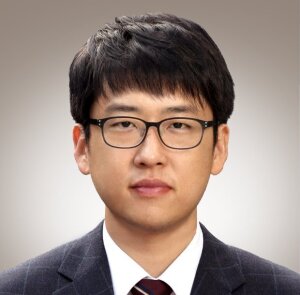Minseok Kang
Minseok Kang
Image: PrivatPersonal Information:
Mineok Kang
m.kang@uni-jena.de
Research interests related to Diaspora:
- Religious minorities
- Church in the GDR
- Religion in communist states
Provisional working title: Christian teaching in the Diaspora: A Study on the Emergence of an Ecumenical Public Sphere in the GDR.
Abstract:
This planned dissertation project aims to investigate the influence of the diaspora (or its identity/situation) and the contribution of the only religious education journal in the GDR, "Die Christenlehre" (Christian Instruction), to the emergence of an ecumenical public sphere in a closed society. The first step will be to address the question, "Why did an ecumenical public sphere emerge?" and to examine the connection between diaspora, ecumenism, and the public sphere, considering the possibilities of the diaspora recently discussed in social sciences and theology. The second step will pose the question, "How did an ecumenical public sphere emerge?" and will analyze the journal "Die Christenlehre" as a medium that contributed to the dissemination and stimulation of this public sphere. This will be examined with critical reference to Jürgen Habermas's concept of the public sphere.
The diaspora discourse in theology has recently shown a growing interest in the relationship between diaspora and ecumenism, as well as between diaspora and the public sphere, stimulated by the diaspora discourse in the social sciences. (See Rose, 2017; Körtner, 2015; Klein, 2021) Despite the fact that the self-conception of the church and religious education in the GDR was very strongly connected to the diaspora, a serious engagement with the diaspora experience in the GDR from an ecumenical perspective has been lacking until now. (Klein, 2021) It is therefore necessary to clarify the relationship between ecumenism and diaspora in religious education in the GDR in more detail. In this study, the diaspora is considered both as a background and as a cause for the emergence of ecumenism in the GDR, and the connection between the two is demonstrated using past and present discourses in social sciences and theology.
Thematic fields of the journal "Die Christenlehre" in the GDR—such as ecumenical topics and responsible living—point in many ways to the understandings of a public theology and public religious education discussed in recent years. Above all, the concept of the public sphere developed by Habermas opens up the possibility of interpreting the church and religious education journals of the GDR, using "Die Christenlehre" as an example, from a new perspective. Habermas considers the "public" and "print media" as the two key components of the bourgeois public sphere, which led to the dissolution of the so-called representative public sphere. The public communicates with one another using print media as a space for free expression, thereby creating the prerequisite for public discourse as a fundamental feature of a bourgeois-democratic, that is, an open society. (See Habermas, 1965) However, while Habermas deals with the transition from a closed to an open society (i.e., from a society of estates to a bourgeois society), this study assumes a simultaneity of open-society phenomena, which become evident in the church press as a place of state-independent expression, within the ideologically "closed" society of the GDR. One goal of the study is to investigate how the religious education journal "Die Christenlehre" functioned in the emergence of an ecumenical public sphere in the GDR, and in what contexts and perspectives ecumenical topics (e.g., justice, peace, preservation of creation, other denominations, world church, etc.) were addressed in the journal. In addition to the ecumenical public sphere, the study will also examine what other public spheres (e.g., freedom of opinion) were shaped by the journal as a religious education periodical.
The results of the planned study are expected to provide deeper insights into the role of the church and religious education press in the GDR through the analysis of the journal "Die Christenlehre". It is also expected that the diaspora experience and the legacy of religious education in the GDR will be re-evaluated from an ecumenical and public-theological perspective. In the sense of international academic knowledge transfer, this study also sees itself as a contribution to the debate on public religious education and public theology conducted in both Germany and South Korea, the researcher's home country.
Keywords:
The Diaspora, The Journal "Die Christenlehre," The Ecumenical Public Sphere, The Church in the GDR
Project Duration:
Since 10.2020
Funding:
State Graduate Scholarship
